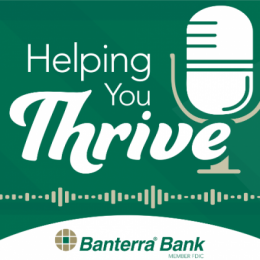
Just as we prioritize our physical health checkups, our financial health deserves the same attention. This guide will walk you through the essential steps to assess the well-being of your money, helping you make informed decisions and set realistic goals for the future.
Step 1: Gather Your Documents
Start your financial wellness checkup by gathering important documents that provide insight into your financial landscape. This includes information related to income, expenses, assets, and debts. For documents related to income, collect bank statements, pay stubs, and tax returns to have a clear understanding of your earnings. Finding bills, receipts, and credit card statements can help track your expenses and spending habits. Next, gather investment statements, bank account balances, and property deeds to evaluate the overall value of your assets. If you have any loan statements or credit cards balances, this will help gain a comprehensive insight.
Step 2: Assess Your Financial Health
Now that you have your financial documents ready, focus on evaluating key aspects to help enhance your financial health.
Budget
A budget is a key piece in organizing and planning your finances. It is imperative to evaluate your budget to ensure that your income is effectively covering your expenses. From there, you can identify areas where you can cut back or reallocate funds to align with your financial goals.
Credit Score
A credit score determines your credit worthiness. At times, it is beneficial to check what your score is to determine if you are in good standing. A good credit score is essential for obtaining favorable interest rates on loans and credit cards. Federal law requires that credit bureaus give you a free copy of your report once every 12 months at AnnualCreditReport.com or by calling 1-877-322-8228. Reviewing your credit report regularly can help identify identity theft, as well as any potential errors.
Emergency Savings
Having an emergency savings fund can be beneficial when something unexpected happens. To be proactive in your savings, assess the state of your emergency savings fund and determine if you need to make changes to your savings strategy. Aim to have at least three to six months' worth of living expenses set aside to cover unexpected costs.
Review Your Investment Portfolio
If you take your savings a step further with investments, it is important to take these into considering when analyzing your financial health. Gather your statements and assess the performance of your portfolio. Consider your long-term goals.
Check on Your Retirement Savings
As years go by, your retirement savings will become even more important. Review your retirement savings accounts, such as 401(k) or IRA, to ensure that you are contributing consistently. Based on your goals and retirement timeline, consider adjusting your contributions accordingly.
Debt Management
If you have debt, set aside time to evaluate your outstanding debts and interest rates. Next, develop a plan to pay off high-interest debts strategically while continuing to meet your other financial obligations.
Insurance Coverage
The last piece of assessing your financial health is reviewing your insurance coverage, including health, life, property, and more. Ensure that your coverage meets your current needs and adjust if necessary.
Three Tips For A Healthy Financial Future
1. Set Goals
As each year comes around, establish short-term and long-term financial goals. Whether it's paying off debt, saving for a major purchase, or planning for retirement, having clear goals provides direction and purpose to your financial decisions.
2. Track Your Progress
Whether you make a commitment monthly or quarterly, it is important to regularly monitor your financial goals and track your progress. This helps you stay motivated, as you can visibly see your progress, but also this provides insight into where adjustments may be needed.
3. Speak with a Professional
Consider consulting with a financial advisor to ensure your financial strategies align with your goals. A professional can offer personalized advice, helping you navigate complex financial decisions and optimize your financial well-being.
A financial wellness checkup provides a comprehensive snapshot of your money's health, allowing you to make informed decisions and set realistic goals. As you embark on your financial wellness journey, allow Banterra Bank to be your trusted financial partner. Visit our website or contact us today to learn more about how our products and services can help you.
February 29, 2024 by Banterra Bank
By clicking the links above, you are now leaving Banterra Bank's website and are going to a website that is not operated by the bank. Banterra Bank is not responsible for the content; availability of linked sites; does not endorse or guarantee the products, information, or recommendations; and is not liable for any failure of products or services provided by the linked website. Please be advised that Banterra Bank does not represent either the third party or you, the customer, if you enter into a transaction. Further, the privacy policy of this site owner may be different than that of the bank and this site may provide less security than the bank's website. We encourage you to read the privacy policies of websites reached through the use of links from the Banterra Bank website.









